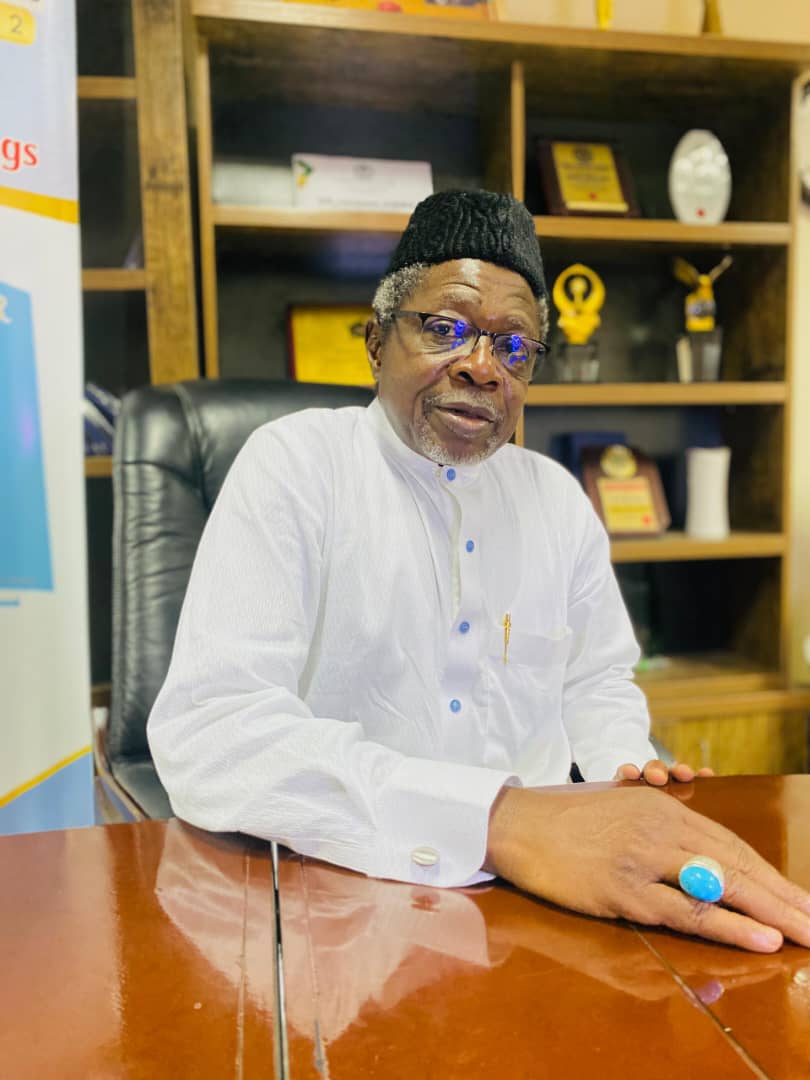The beggar’s mindset, by Osmund Agbo
I found myself seated beside an American woman on a flight bound for Nigeria recently. Stephanie (not her real name) was making her second visit to the country, having connected online with a young Nigerian man. This time, she planned to spend several weeks deepening their relationship. Over the course of our nearly 12-hour journey from Atlanta to Lagos, we had ample time to engage in conversation.
Stephanie expressed a genuine affection for Nigeria, a country she hoped to eventually call home through marriage. She spoke admiringly of the irrepressible energy of its people, our entrepreneurial drive, and an almost supernatural resilience in the face of chronic governmental neglect.
She was especially fond of our spicy cuisine, remarking with amusement that what Americans label “hot” barely registers on her palate. She couldn’t get enough of Burna Boy or the infectious rhythms of Afrobeats.
Yet, there was one aspect of her experience that deeply unsettled her: Nigeria’s pervasive culture of begging.
READ ALSO: Tinubu, Kanu and the Legacy of Nigeria’s Igbo problem, by Osmund Agbo
“Everywhere I turned,” she observed, “people seemed to expect a handout without offering the slightest service in return. And when you didn’t oblige, you could almost taste the disapproval, sometimes even hostility.” Her initiation into this unsettling dynamic, she recalled, began the moment she disembarked the aircraft on her first visit: immigration officials subtly soliciting bribes, unsolicited porters insisting on handling her luggage, and an unending procession of individuals requesting “something small” with neither justification nor effort.
For Stephanie, it was a bewildering cultural shock. For me, as a Nigerian, it was sadly unremarkable, a reality I, like many others in the diaspora, have come to accept as part of our social fabric. We long ago internalized the informal levy of the so-called “Black tax.” But what startled her and what we have grown alarmingly numb to, is not merely a culture of begging, but a manifestation of a deeper malaise: the cargo-cult mentality.
At its core lies a flawed worldview, one that presumes the universe, or some anonymous benefactor, is duty-bound to deliver unearned rewards simply by virtue of our desire.
READ ALSO: The myth of the self-made man, by Osmund Agbo
Nigerians are exceptional people. From the tech hubs of Lagos to the corridors of academia in Toronto, we show brilliance and tenacity. Wherever we go, we hustle, we strive, we rise. But coexisting with that resilience is a troubling paradox: the quiet but pervasive belief in something for nothing.
We must be honest with ourselves. Too many among us have been conditioned to expect rewards we haven’t earned. We want success without effort, wealth without work, and breakthrough without process. This cargo-cult mentality is not only corrosive to ambition; it is morally unsound. Because the truth is, the universe owes us nothing. No one does.
The term “cargo cult” originates from post-WWII Melanesia, where islanders, after witnessing Allied troops receive supplies via aircraft, began mimicking their behavior, building makeshift airstrips, donning fake headsets in the hope that the planes and their goods would return. But that kind of magical thinking, as absurd as it may seem, has its modern equivalent in Nigeria today.
You see it in get-rich-quick schemes. You hear it in conversations with relatives back home: “You’re in America now, help me na.” No business plan and sometimes, zero effort. Just a belief that being close to someone successful entitles you to a share.
READ ALSO: The gift of imperfection, by Osmund Agbo
You see it in young people looking for “connections” rather than crafting competence. In the moral economy of this mindset, being owed takes the place of being valuable.
But life does not reward people based on need or desire. It rewards value. It rewards contribution. It rewards effort.This is a lesson we must teach and learn as a nation if we are ever to prosper in a meaningful, sustainable way. This belief in unearned entitlement is also why Ponzi schemes flourish in Nigeria. People invest in shady programs with the faintest promises of astronomical returns. They’re not stupid, they’re desperate. Desperate for shortcuts. Desperate for a miracle. And no one sells miracles better than Nigerian fraudsters in pulpits.
Talking about the pulpits, Nigeria probably has the highest number of churches per square kilometer on the continent, maybe the world. And while faith is a beautiful thing—perhaps the last refuge of a suffering people, it has often been weaponized to justify laziness and entitlement. We’re told to “sow seeds” and expect “divine alerts.”
We are promised jobs we didn’t apply for, mansions we didn’t build, and financial favor we didn’t earn. A gospel that once called people to hard work, community service, and ethical conduct now promises fast cars and effortless promotions.
READ ALSO: The truth about truth, by Osmund Agbo
But no amount of hallelujah or hustle can override the foundational truth: life pays you for what you produce. Not what you wish for. Not what you demand. Not what you pray into existence without action. It is a transactional world, and though unfair at times, its deepest rewards are not for the passive, but the persistent.
Of course, any honest analysis must acknowledge the role of successive, irresponsibly negligent leadership in shaping this dysfunction. For decades, Nigerian governments have failed to provide jobs, build reliable infrastructure, or invest in quality education.
We’ve been governed by elites who act as if the nation’s resources are their inheritance and the people are a nuisance. When the state abandons its people, desperation fills the vacuum.
Still, hardship explains behavior but it does not excuse mindset. Many societies have known poverty without developing a culture of dependency or magical thinking. It is one thing to suffer; it is another to expect handouts as a way of life.
The way forward requires a cultural recalibration:
READ ALSO: Living life the Nova way, by Osmund Agbo
First, we must stop glorifying outcome over process. We need to ask how people succeed, not just that they did. Was it through innovation? Diligence? Service? Or just luck, fraud, or proximity to power?
Second, we must stop rewarding laziness and entitlement with guilt-laced generosity. There’s nothing noble in enabling irresponsibility. Instead, we should uplift those who are trying, those who are willing to learn, to build, to work.
Third, our educational and civic institutions must reorient their focus. Teach skills. Promote merit. Elevate character. And above all, make it clear: no one is coming to save you. You must build your own future.
Finally, we must model a culture of earned success. Those of us who have “made it,” whatever that means, must not only give but guide. We must mentor. Teach people how to fish. Show them how to grind. Remind them that the dignity of labor is not a cliché; it’s a compass.
Let’s kill the cargo-cult mindset. Let’s bury the idea that someone owes us success, or that luck is a strategy. Because until we do, we will continue to be a nation of great potential, perpetually waiting for manna that will never fall.
It is not cynical to say the world owes us nothing. It is empowering. Because once we stop waiting for unearned blessings, we can begin to create our own. And that, more than any miracle, is the true path to transformation.
Osmund Agbo is a medical doctor and author. His works include, Black Grit, White Knuckles: The Philosophy of Black Renaissance and a fiction work titled The Velvet Court: Courtesan Chronicles. His latest works, Pray, Let the Shaman Die and Ma’am, I Do Not Come to You for Love, have just been released. He can be reached@ eagleosmund@yahoo.com
Follow the Neptune Prime channel on WhatsApp:
Do you have breaking news, interview request, opinion, suggestion, or want your event covered? Email us at neptuneprime2233@gmail.com





